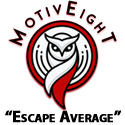

I’ve always admired fearless runners and their abilities to perfect marathons. One of the greats come to mind: Eliud Kipchoge. Kipchoge shows that with extensive practice and discipline, the hope of completing one (or two marathons) and grabbing the title and record as the world’s fastest marathoner are not impossible missions.
While exhilarating for skilled runners, marathons demand preparation, training, and stamina. Watching the replay of the London Marathon of 2019, it’s abundantly clear that top runners maintain a good and steady pace among a myriad of other acts of willpower. Amazed and stationary, I wonder if Kipchoge, ever felt lonely along the journey. Markedly, as the race’s leader, he may not even be able to hear the pounding footsteps of the closest runner who lag by a few seconds. What kept him going?
The potential loneliness facet is the one that I want to retrace through the eyes of the scholar on the dissertation journey. Few successfully complete a marathon or a dissertation. Both journeys demand one’s best. The writing journey is by no means an overnight achievement. A set routine combined with the efforts of researching, writing, editing and incorporating feedback are essential. Practice makes permanent. With each passing mile(stone), researchers re-employ verve and determination. The created writing strategy is mobilized, tweaked and refurbished. The scholar keeps trotting through a dark, lonely and sometimes unpaved path.
Scholars are guided to select a topic that is of personal interest, is manageable, addresses a real issue, and is attainable in this lifetime. More so, topics should challenge assumptions, uncover new evidence or facts, explore and test theories, or locate new interconnections among variables. Translation: You are not solving for world peace. Devote time to attain alignment across the problem and purpose statements, and develop a funneled approach to one’s research. Run the race and then go inspire others.
Scholars may feel they are left to fend for themselves; this should not be the case. Here are a few helpful tips to beat isolation:
- Lock in a mentor
- Network with fellow cohort members
- Convene an “at home” support strategy
- Remember to spend time with family and friends
- Take music with you on the journey
Selecting a solid committee is vital and may help to keep solitude at bay. Keep these tips at top of mind:
- Choose your committee wisely: For the selection process, consider the years of experience of each member
- Examine member credentials carefully. Look at their areas of specializations and ensure these skills pair with your study, design and methodology
- Know that committee members are there to serve as guideposts
- Understand the committee members availability (upfront)
- Establish cadence with your committee; prepare a plan every time you meet, exchange updates and gather feedback
- Find out if committee members have successfully published in journals
- Swap out committee members if you have to – but be extremely careful when you make this change as it can be a setback
- Shop around well in advance
Completing the core curricula for the doctoral degree and writing a dissertation are two paths to the same journey, which vastly resemble the combined skill of drinking water from the opposite side of the glass while leaning forward at a 45 degree angle (a nice treatment for pesky hiccups).
Nearing the end of the race, it may seem even more challenging to maintain the pace. Despite the bouts of physical cramps and weakening of one’s legs, like Kipchoge, the scholar will not be broken or dissuaded.
Imagine a caption with your name as you cross the Phinished line. Greeted with warmth, the scholar ends the marathon and begins a whole new journey as a lifetime member of the Doctoral community.
About the Author
Simone Arnold is a vice president of Global Network Strategy at a Fortune 500 Company. She is also an alumna and contributor to the Center for Education and Information Technology Research and the Center for Workplace Diversity and Inclusion Research at the University of Phoenix. She researches emotional intelligence, workplace diversity, and statistical procedures and applications for continuous performance development. She holds a Doctor of Management degree in Organizational Leadership from the University of Phoenix. Simone is the Founder and Chief Inspiration Officer at Motiv-Eight, LLC. Learn more at www.motiv-eight.com.
